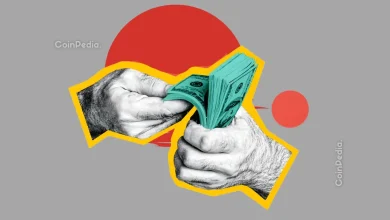
JPMorgan launches JPM Coin, enabling instant 24/7 real-dollar transfers for global institutional clients.
Built on Coinbase’s Base blockchain, JPM Coin bridges Wall Street with the crypto ecosystem.
JPMorgan plans multi-currency expansion as banks race to adopt blockchain for faster transactions.
The future of digital finance just took a major leap — and it’s coming from Wall Street itself. JPMorgan Chase has officially launched its blockchain-based deposit token, JPM Coin (JPMD), marking a bold move in how traditional banks are adopting blockchain technology.
With transactions settling in seconds, 24/7, JPM Coin allows institutions to move money instantly and even earn interest on their deposits.
JPMorgan Launches Real-Dollar Blockchain Token
JPMorgan has officially launched JPM Coin, a blockchain-based deposit token designed for institutional clients, marking a major step in the bank’s digital finance journey.
Unlike regular stablecoins, JPM Coin directly represents U.S. dollar deposits held at JPMorgan. This means institutions can transfer real funds instantly, even outside normal banking hours, something traditional systems can’t offer.
The key difference lies in what backs it. While stablecoins depend on reserves and don’t generate yield, deposit tokens like JPM Coin are digital versions of actual bank money, and they can even earn interest.
Additionally, transactions settle in seconds, 24/7, eliminating traditional banking delays and making global transfers faster and more efficient.
JPM Built on Coinbase’s Blockchain
What makes this launch even more interesting is the choice of blockchain. JPM Coin will operate on Base, the public blockchain built by Coinbase. This collaboration connects one of the world’s largest banks with one of crypto’s biggest exchanges, a sign of growing cooperation between traditional finance and Web3.
According to JPMorgan’s blockchain co-head Naveen Mallela, the coin allows payments to settle “in seconds, anytime, around the clock.”
Early pilot participants include Mastercard, Coinbase, and B2C2. Additionally, Coinbase will accept JPM Coin as collateral, further integrating the token into the broader crypto ecosystem.
Global Banks Join the Blockchain Race
JPMorgan plans to expand JPM Coin to multiple currencies and blockchains, pending regulatory approval. The move comes as global banks like Citigroup, Deutsche Bank, Santander, and PayPal explore similar blockchain payment solutions to speed up settlements and reduce costs.
With new U.S. laws like the Genius Act shaping the stablecoin market, deposit tokens may soon become the preferred choice for institutions looking for compliant, yield-bearing digital assets.
Never Miss a Beat in the Crypto World!
Stay ahead with breaking news, expert analysis, and real-time updates on the latest trends in Bitcoin, altcoins, DeFi, NFTs, and more.
FAQs
JPM Coin is JPMorgan’s blockchain-based digital token that represents U.S. dollar deposits, allowing institutions to transfer funds instantly and earn interest, 24/7.
Unlike stablecoins, JPM Coin is a direct digital claim on JPMorgan bank deposits and can earn interest, offering a regulated, bank-backed alternative for institutions.
JPM Coin operates on Base, the public Ethereum layer-2 blockchain developed by Coinbase, bridging traditional Wall Street finance with the crypto ecosystem.
Yes, institutions holding JPM Coin can earn interest on their digital deposits, a key advantage over non-yield-bearing traditional stablecoins.
JPM Coin is designed for institutional clients like Mastercard and Coinbase, enabling them to settle payments instantly, use it as collateral, and move money globally.
Trust with CoinPedia:
CoinPedia has been delivering accurate and timely cryptocurrency and blockchain updates since 2017. All content is created by our expert panel of analysts and journalists, following strict Editorial Guidelines based on E-E-A-T (Experience, Expertise, Authoritativeness, Trustworthiness). Every article is fact-checked against reputable sources to ensure accuracy, transparency, and reliability. Our review policy guarantees unbiased evaluations when recommending exchanges, platforms, or tools. We strive to provide timely updates about everything crypto & blockchain, right from startups to industry majors.
Investment Disclaimer:
All opinions and insights shared represent the author's own views on current market conditions. Please do your own research before making investment decisions. Neither the writer nor the publication assumes responsibility for your financial choices.
Sponsored and Advertisements:
Sponsored content and affiliate links may appear on our site. Advertisements are marked clearly, and our editorial content remains entirely independent from our ad partners.


![Why Is the Crypto Market Going up Today [Live] Updates on March 3, 2026](https://image.coinpedia.org/wp-content/uploads/2026/03/03170220/Why-Is-the-Crypto-Market-Going-up-Today-Live-Updates-on-March-3-2026-2-390x220.webp)





